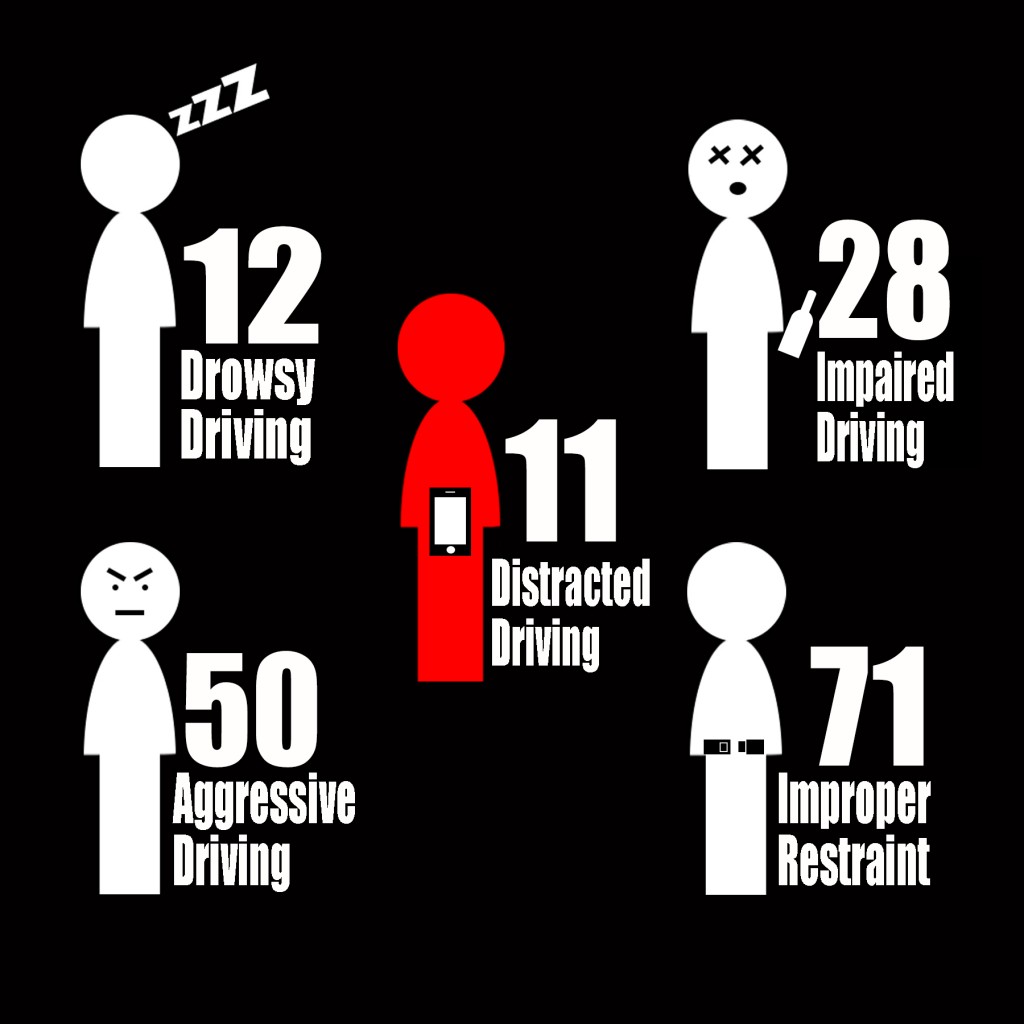
Rosa left early for work one morning, a single mother with three daughters to support. She decided to walk, despite the cold, because the brakes on their car were bad.
As she crossed University Avenue, she was hit by a distracted driver and died hours later.
Distracted driving accounted for 11 out of 219 lives lost on Utah roads in 2013, making it one of the top five deadliest driving behaviors, according to Zero Fatalities‘ website.
Texting while driving is a particularly distracting behavior. A USDOT study reported drivers are 23 times more likely to crash if they text while driving.
According to the official U.S. government website for distracted driving, “Sending or receiving a text takes a driver’s eyes from the road for an average of 4.6 seconds, the equivalent — at 55 mph — of driving the length of an entire football field, blind.”
In Utah, drivers who text behind the wheel can be cited with a class C misdemeanor, according to Utah law. This could land offenders with a maximum penalty of 90 days in jail and a $750 fine, according to the Utah court website.
Although the man who killed Provo mother Rosa Merino in January was not distracted because he was texting, the Provo police responded with an anti-texting enforcement event to raise awareness of the issue’s seriousness.
Provo Police Lt. Matthew Siufanua said even if one is not violating any other traffic laws, the mere act of texting while driving is enough to get a ticket.
“If you’re in Provo, you’re getting a ticket. If you’re texting and driving and doing it really well, you’ll get a ticket,” he said.
Texting isn’t the only behavior that is prohibited; checking emails, surfing the web or looking through songs on your iPod can also spell trouble.
Siufanua said the Provo Police Department issued four citations in just a few hours during the enforcement event.
“We just want to send a message to people: don’t text and drive,” he said. “Don’t talk on the phone and drive, because you just might be distracted.”
Utah law lists a few specific cases when using one’s phone while driving is allowed, including making and receiving telephone calls, navigating and reporting safety hazards or criminal activity.
“Talking while you’re driving is not against the law unless you are distracted,” Siufanua said. “But if you run somebody over and kill them, we’re going to charge you with negligent homicide due to distracted driving.”
Merino’s case was not the first incident when a distracted driver resulted in the death of a pedestrian near campus.
In 2010, a man driving down Campus Drive hit two pedestrians as they crossed the crosswalk, killing one and injuring the other, according to official records. There is evidence he was texting while driving, but authorities cannot prove this led directly to the accident.
Benny Salido, a defense attorney with Salido Law firm in Provo, said he gets a handful of texting-while-driving cases each year.
He said if the court has evidence a driver injured someone because of texting while driving, the chances of getting off without a penalty are slim to none.
“Unless they (the prosecuting attorney) got the evidence illegally, there’s not really a defense to it,” he said.
“I drive on the roads every day and I still see people texting and driving. I think it will probably get worse before it gets better,” said Siufanua.
The best solution? Get rid of the distraction altogether. Leave your phone in your pocket, give it to the passenger, or pull over if you need to use it.
“I hand it to my wife and ask her to text for me,” Siufanua said.




